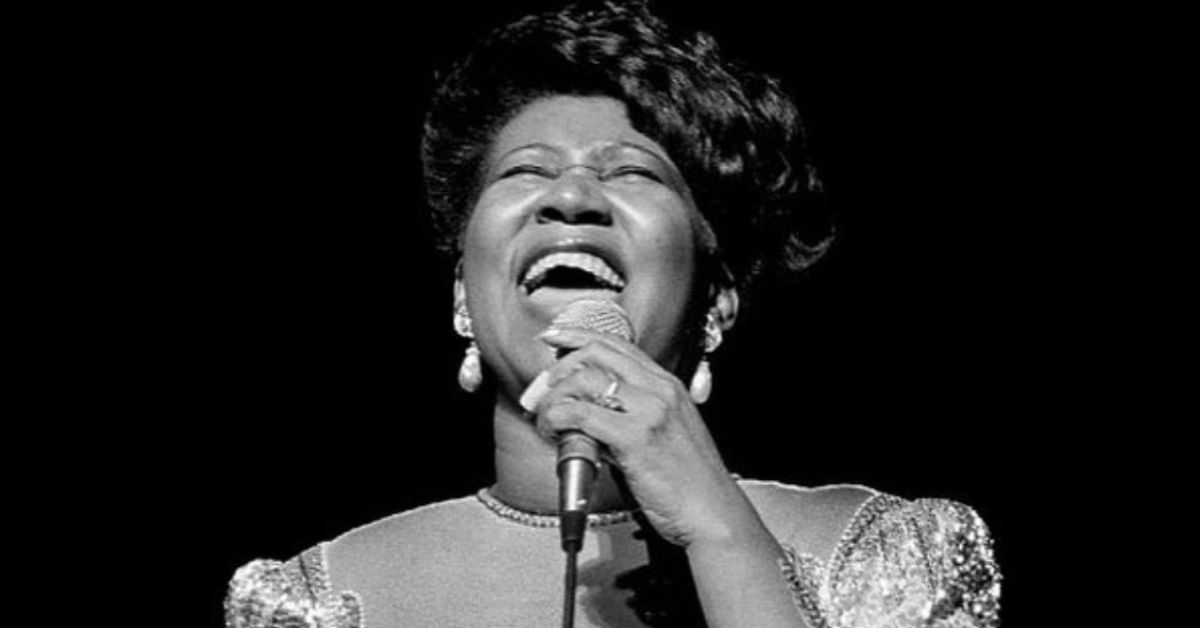Aretha Franklin is the Queen of Soul who is known for her stunning, powerful vocals and songwriting capabilities. Franklin's career spanned decades and her influence is still felt today in the likes of vocalists like Jennifer Hudson, Fantasia Barrino, and Ariana Grande.
Having been born to a Baptist minister, who gained his own fame and financial success because of his "million-dollar voice", Aretha was exposed to many celebrities visiting her home, including the likes of popular gospel musicians Clara Ward and Albertina Walker.
The powerhouse vocalist is also known for her activist work in the realms of civil rights and women's rights, having performed at protests and providing funding to certain civil rights groups. Franklin even declined to perform at former President Donald Trump's inauguration as a form of protest with other well-known artists.
It is because of her open and vocal activism and association with many civil rights groups that Aretha had been targeted for a longer-term investigation by the FBI.
Aretha Franklin Has Ties To Prominent Civil Rights Figures
Along with the many other celebrities that Aretha was introduced to because her father was none other than Reverend Martin Luther King. Aretha grew to support Reverend Martin Luther King's viewpoint, often appearing and even performing at events hosted by the figure.
There were plans to have a memorial concert shortly after Reverend Martin Luther King's death, and there were concerns by the FBI that her presence at such an event could potentially cause an "emotional spark which could ignite racial disturbance [in the] area."
Ultimately, the memorial concert did not take place, but Aretha did still perform Take My Hand, Precious Lord by Mahalia Jackson at Reverend Martin Luther King's funeral.
Franklin also vocally supported Angela Davis and spoke out when the activist was arrested, speaking about her perspective as a black woman who was arrested for disturbing the peace in Detroit. At the time, David was being monitored by the FBI leading up to her arrest, where she initially spent her time segregated and in solitary confinement.
There was a concern that Aretha may have also been associated with The Black Panthers, a political organization that was active from the 1960s through the 1980s.
While the group did many fantastic things like creating education programs and health clinics in urban communities, the US government still viewed them as a threat to the country's peace and security.
Aretha Franklin Is Not The Only Artist the FBI Kept Tabs On
Believe it or not, the FBI has kept tabs on musicians as far back as the early 1900s, and Aretha Franklin isn't the only artist on the bureau's radar throughout the civil rights movement and beyond.
Some lesser surprising names on this list are the likes of legendary rapper and lyricist Tupac and the group NWA. Like Aretha, Tupac was also known to be outspoken about the plight of urban communities and is often seen in interviews giving profound and insightful answers to the questions posed by interviewers.
According to the FBI, the rapper was receiving death threats from the Jewish Defense League in the months leading up to his death, something the organization had apparently been doing to several rap artists.
John Lennon of The Beatles fame was also closely monitored by the federal agency, likely because of his loud and proud activism. John Lennon often spoke openly about his thoughts on the Vietnam War and made it a point to be vocal about his thoughts surrounding the war and its propaganda.
The FBI went so far as to study all of John Lennon's lyrics, having garnered a bit of a negative reputation while J. Edgar Hoover was in charge. Like Aretha, Lennon was seen as a threat to national security, and the FBI even had plans to try and convict Lennon on a narcotics charge, so the star could be easily deported back to England.
Other popular artists followed by the FBI include the likes of Jimi Hendrix, Elvis Presley, Frank Sinatra, Jim Morrison, and even Liberace.
The reasons included things like the theft of Liberace's jewelry, lewd behavior and indecent exposure by Morrison, and drug charges and use by Hendrix, with accusations that the guitarist was placing LSD in his bandana, so it would slowly dissolve throughout his stage performances.
The FBI Kept Tabs On Aretha For Decades
According to NPR, the FBI released a 270-page document related to the investigation they conducted on Aretha Franklin, which apparently spanned forty years of her life.
While her ties to Reverend Martin Luther King and activist Angela Davis are no doubt part of the reason she was investigated, the document also reveals additional memos about Franklin, including one called "Possible Racial Violence, Urban Areas, Racial Matters."
This particular memo details a riot that occurred in Denver when Aretha refused to perform because she wasn't properly compensated for her work. Another memo made mention of the Black Panther Party of LA and the Boston Young Workers Liberation League's intention to book Franklin for their rallies.
It has been revealed that the FBI kept an eye on Aretha's father as well, and even intercepted a call that he received from the Black Panther Party, who were attempting to get in contact with Aretha directly. This is allegedly done to try and get incriminating evidence from the people that are being monitored.
And the FBI continued to keep tabs on Aretha all the way through 2007, long after the early civil rights movement had ended. The memo makes sure to mention that there is no further investigation being conducted on Franklin, a statement that was likely made before her passing in 2018.
This investigation by the bureau helps solidify Aretha Franklin as not only a strong civil rights activist and powerful woman, but an all-around tough woman who had no problem holding her ground on social justice issues, and standing by those she believed were worth fighting for.

